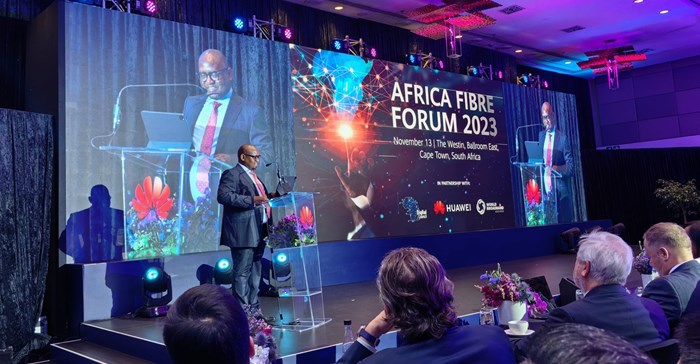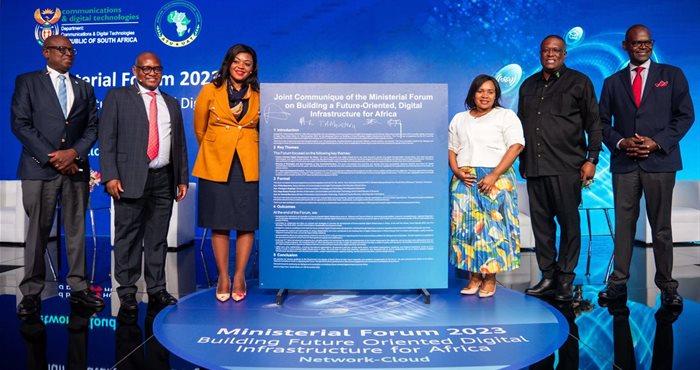
Related
Top stories






More news

















Logistics & Transport
Uganda plans new rail link to Tanzania for mineral export boost









“Africa fibre penetration to site in Africa is only around 35%, while the global average is 56%. Of that the fibre to home penetration is only 5% in Africa and far behind the global average of 30%,” explains Leo Chen, Huawei Southern Africa region president.
“There is huge scale and potential for the fibre community.”
Africa Analysis estimates that the continent needs to spend around $100m on core infrastructure and lay more than 500,000km of fibre cable by 2030 to be in a position to reap the rewards of the digital services era.
“We’ve been obsessed with mobile for the last 20 years and are now reaching the limitations of what mobile can achieve on its own. I think the focus for the next decade should be on fibre,” said Martin Creaner, the director general of the World Broadband Association (WBBA).
The WBBA suggests that network connectivity requirements for the AR revolution that tech companies like Meta and Apple are selling will be 100mbps at minimum. For Africa to participate in high quality mixed reality or extended reality solutions the continent will require a gigabit society.
“In South Africa you cannot compromise on quality of experience,” explains Maziv CEO Dietlof Mare. “The only difference between SA and the UK or European countries, from a fibre infrastructure perspective, is space. We have massive distances to cover and build infrastructure.”
Mare also spoke of a growing overbuild crisis that is concentrating data connectivity in the areas with easy access, like cities and urban environments. This overbuild means there’s a leak in efficiency because you have competing, and sometimes duplicate solutions trying to serve the same customer needs.
“If the overbuild ratio climbs too high, the funding will dry up because you’ve spent the investment on a concentrated area,” he says.
“So if you got money to lay fibre and put up towers, and you did all that in the same area – that isn’t an efficient way to spend investor money.”
Maziv boasted about its efforts to connect schools and government services to fibre and its gains in lower income areas, but Mare also stressed the complexity of entering those spaces.
“Disposable income is less in those previously disadvantaged communities, so you have to compete on quality. Offer a better experience than can be found in the privileged areas and you will have those customers become advocates for your service.”

At another curtain raiser for ATF the Ministers of Communications and Digital Technologies and the African Telecommunications Union (ATU) member states, convened for the Ministerial Forum on Building a Future-Oriented, Intelligent Digital Infrastructure for Africa.
This forum was also the stage for the presentation of the South African Fibre Broadband Development Initiative, a partnership between the Department of Communications and Digital Technologies (DCDT), the Digital Council Africa (DCA) and Africa Analysis, it's a position paper titled Toward a Gigabit Society in South Africa.
The paper analyses the positive impact that increased fixed broadband adoption will have in SA from a social and economic perspective. It outlines the status and challenges and proposes recommendations on strategy and policy interventions to turn South Africa into a gigabit society.
